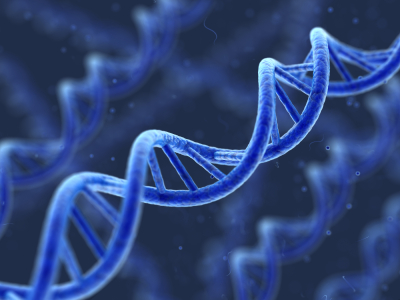1000 Genome Project publishes database of 800 whole human genome sequences
![]()
More than 800 whole human genomes were sequenced and the data was recently made available in a public database by the 1000 Genomes Project. This development is a reminder to medical laboratories and pathologists that clinical use of whole human genome sequences is fast approaching.
It is possible for clinical laboratory managers to access an article in the journal Nature that describes the work of the 1000 Genomes Project during this four-year pilot phase. The article is available on the Nature website as a PDF download.
One notable aspect of this achievement is that, in only 48 months, researchers involved in the 1000 Genomes Project were able to sequence 800 whole human genomes. This demonstrates how the time required to sequence a 3-billion base pair human genome is shortening, along with rapid declines in the cost required to complete an entire human genome sequence.
The 1000 Genome Project’s overall objective is “to discover, genotype and provide accurate haplotype information on all forms of human DNA polymorphism in multiple human populations. Specifically, the goal is to characterize over 95% of variants that are in genomic regions accessible to current high-throughput sequencing technologies and that have allele frequency of 1% or higher (the classical definition of polymorphism) in each of five major population groups (populations in or with ancestry from Europe, East Asia, South Asia, West Africa and the Americas).”
According to Paul Flicek, Ph.D., lead member on the team that conducted the research at the Hinxton, Cambridgeshire UK-based European Molecular Biology Laboratory’s European Bioinformatics Institute (EMBL-EBI), “Having a systematic catalogue of human variation changes the way we can study human genetics, much in the same way as having a catalogue of human genes did. Among other things, it also gives us a platform for analyzing the connections between genes and an individual’s disease risks.”
In recent issues of The Dark Report, clients and subscribers learned how pathologists at the Beth Israel Deaconess Medical Center collaborated with GenomeQuest, Inc. to begin doing whole genome sequencing of patients’ tumors. In part one of this two-part article titled “Primary-care Pathology—One Goal at Beth Israel,” Jeffrey Saffitz, M.D., Ph.D., Chairman of the Department of Pathology and Mark Boguski, M.D. Ph.D., Associate Professor of Pathology at Beth Israel Deaconess Medical Center (BIDMC) discussed how pathologists there will use whole human genome sequencing to advance laboratory medicine.
“We think that the landscape of molecular diagnostics is going to be revolutionized by genomic approaches—rather than by analyzing one or two genes at a time,” observed Boguski in his exclusive interview with The Dark Report. “You can’t have personalized medicine without precision diagnosis, and increasingly that diagnosis is going to be multi-factorial, based on whole-genome data sets.”
BIDMC outsourced its genome sequencing, mapping, variation-calling, and annotation needs to GenomeQuest, a Westborough, MA-based company that specializes in sequence data management. Essentially, GenomeQuest will provide these services for tumors and other patient specimens provided by BIDMC.
GenomeQuest will warehouse and manage the resulting data produced by whole genome sequencing. Pathologists and informaticists at BIDMC will analyze the whole human genome data to identify useful diagnostic markers and clinical information.
“Using collaborations like the one with GenomeQuest, we can access the latest technology and tap into the most powerful sequencing and analytical resources available,” noted Saffitz. “We can then tailor the resulting flow of diagnostic information to the needs of our physicians and their patients.”
In 2000, the Human Genome Project released its first draft of the complete human genome. I took ten years to complete the sequence and cost roughly $3 billion.
According to Richard Resnick, CEO of GenomeQuest, “by 2011, we might be able to sequence something like 50,000 of these types of cases in the course of the year,” he speculated.
“But that is a conservative prediction,” he added. “That number is 10 times more than our industry could have done in 2010 and it is predicted that the sequencing industry will add another 10 times more sequencing capacity by 2012, making it possible to sequence 500,000 individuals per year.”
By sequencing 800 human genomes in only 48 months and releasing this data to the public, the 1000 Genomes Project has made a major advance in the field of whole human genome sequencing. Now, pathologists at Beth Israel Deaconess Medical Center are among the first in the world to establish a research collaboration whereby cancer specimens and other types of patient tissues can be fully sequenced for the purpose of identifying useful diagnostic information.
Related Information:
A map of human genome variation from population-scale sequencing [PDF]
A map of human genome variation from population-scale sequencing [HTML]
Pilot Phase of 1000 Genomes Project Identifies 8 Million New Genetic Variants
1000 Genomes Project ushers in new era for human genetics
The Dark Report laboratory intelligence charter membership services




